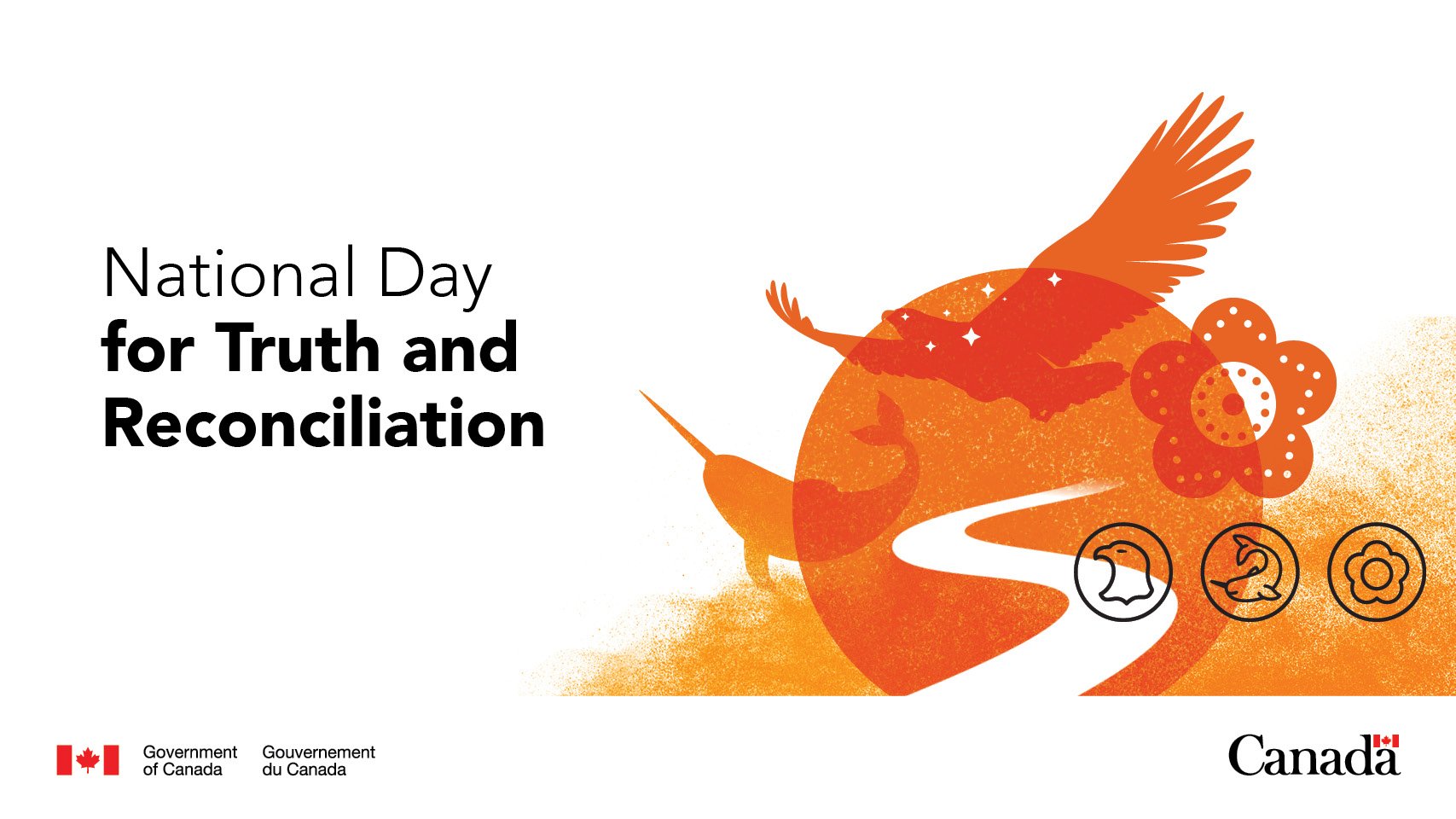What if the concept of RIGHTS is wrong?
Image provided by the Government of Canada. Read here for a description of the imagery.
by Suhlle Ahn
Note: A version of this content appeared our Tidal Equality Newsletter that went out to our subscribers this week.
As an organization working to help Build Equality Better, we naturally put a premium on respecting RIGHTS—individual and human—as one of the fundamental building blocks supporting a vision of EQUALITY FOR ALL.
But what if—when it comes to at least some forms of Indigenous thinking—the concept of rights is the wrong framework altogether?
Today, Friday, September 30th, marks the second official National Day for Truth and Reconciliation in Canada.
And while it’s only ONE of many ways to honour the victims of the residential school system, we thought making an attempt to really wrap our heads around this idea is an exercise that doesn’t feel trivial. It’s also in line with Call to Action 50 of the Truth and Reconciliation Commission’s report, “Equity for Aboriginal People in the Legal System”:
“to fund the establishment of Indigenous law institutes for the development, use, and understanding of Indigenous laws and access to justice in accordance with the unique cultures of Aboriginal peoples of Canada.”
*
Weeks back, we devoted space in our newsletter to the Land Back movement in Canada.
But within this, one area we only scratched the surface of concerns the different legal systems—Indigenous, Aboriginal, and colonial—that stand at the center of current disputes over WHOSE LAND it even is, and who should have decision-making power when it comes to an issue like the Coastal GasLink pipeline project.
In talking about the conflict between pipeline protesters and the RCMP, for example, Associate Professor, University of Ottawa, Aimée Craft says this:
“We can see [the challenge] in the images of land defenders coming up against the state police. Both are lawful—both are employing their own systems of law. What you have are two legitimate legal authorities that are saying two different things.”
And what’s at the heart of those two different things?
As University of Windsor Faculty of Law Associate Dean Dr. Beverly Jacob puts it:
“The whole intention [of past treaties] was for us to live together. Our [Indigenous] laws are always about that responsibility—our relationships, reciprocity. It isn’t until we bring in colonial law that all of a sudden we’re talking about rights. And even the whole concept of rights was also based on an individual. That isn’t how we think of things…”
Or in the words of artist/storyteller Isaac Murdoch (Bombgiizhik):
“If you have somebody that has a right to that glass of water, and you have somebody else that has a right to that glass of water, and you have somebody else that has a right to that glass of water, it becomes a conflict. But when you have three people that are RESPONSIBLE for that glass of water, it changes the whole narrative. It changes the whole feeling.”
In an interview for Pivot Legal Society, Board Chair Stephen Mussell explains that Indigenous law and Aboriginal law are two separate things, based on different worldviews and different root concepts. Mussell himself works within the Aboriginal framework to advance human rights for Indigenous Canadians (and other marginalized groups). But he says this:
“I would like lawyers to understand that Aboriginal law is something completely separate and different from Indigenous law. Aboriginal law has been developed by the colonial state. Indigenous laws are pre-existing and existing laws which carry their own weight and authority, and which deserve to be treated in a similar vein that lawyers treat colonial law: as something that has its own inherent power, something that has its own legitimacy, and something that is diverse and dynamic, and comes from multiple sources…I think if we just simply understood that they are two very distinct, different things and they both carry their own authorities and their own ways, I think that would be a very good first starting point.”
We can’t claim that trying to give equal weight to a non-rights-based way of thinking when it comes to advancing justice and equality is easy. The entire system of justice that many of us have grown up with—our language and our terminology—make it hard even to REFRAIN from framing the conversation as one about rights.
But it could be one path forward, toward seeing and working past the impasse of CONFLICT.
For that, it seems worth trying to wrap our heads around…

